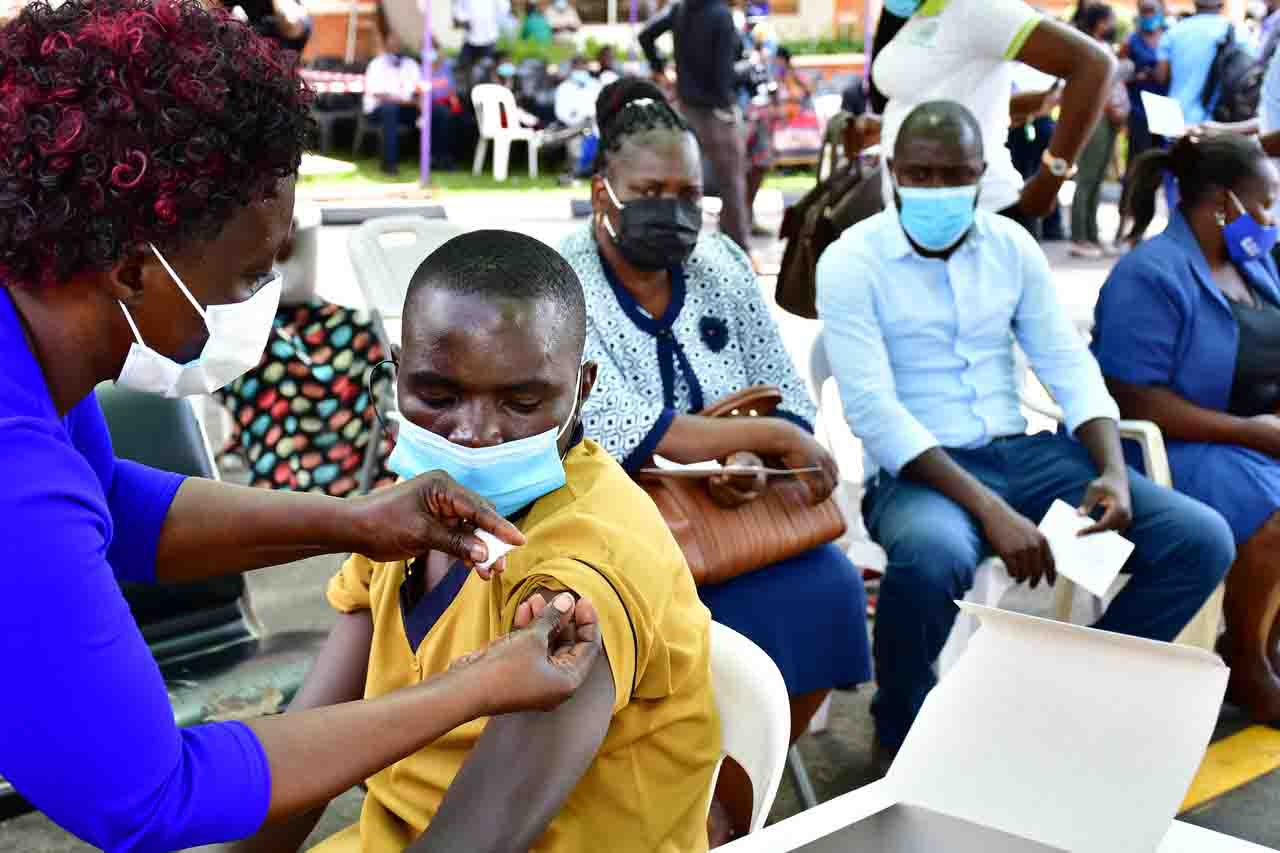Education, Health clash over vaccination plan

A health worker administers a jab at Kololo Ceremonial Grounds in June. PHOTO/ABUBAKER LUBOWA
The Ministry of Health has said the demand by their Education counterparts to prioritise inoculation of learners using the current batch of vaccines to allow for the opening of schools is not practical.
The Health ministry, however, said they will hold meetings with their Education counterparts to harmonise the divergent positions. The two ministries are supposed to meet today to discuss, among other things, the reopening of medical schools.
Dr Joyce Moriku Kaducu, the State minister for Primary Education, last Thursday, two days before the country received the additional 586,080 doses of vaccines, demanded university students and teachers be prioritised in the rollout of the vaccines.
“When we receive the doses of vaccines, we are expecting teachers and university students to be given priority. When we do this, no one should complain,” Dr Kaducu said.
She added that even if not all are vaccinated, a good percentage of teachers and learners should be vaccinated “so they can resume and stay at school comfortably.”
President Museveni last Friday said the ministries of Education and Health should sit to forge ways of reopening medical schools.
The initial plan of the Ministry of Health was to vaccinate 21.9 million people, but as of yesterday, they had vaccinated a total of 1,143,763 people, with 902,992 receiving one dose and 240,771 receiving the two doses. Only 110,000 of the targeted 550,000 teachers at both public and private schools have received the shots, partly because of hesitancy and limited doses at hand.
Student numbers
According to the government statistics, there are 258,866 students in all private and government universities in the country.
Considering 440,000 teachers and 258,866 university students who are yet to take jabs, it means the two groups alone would roughly require 1.4 million doses of the double-shot AstraZeneca vaccine.
Dr Alfred Driwale, the head of the Immunisation Programme, told Daily Monitor yesterday that the ministry’s initial plan was to vaccinate those who are at higher risk of developing severe disease, and that students were not part.
He said introducing another group (students) at a time when the majority of the people who are considered more vulnerable to Covid-19 are not yet vaccinated is not wise.
“Critical numbers that we want to vaccinate as a matter of urgency to reduce death is about 4.5 million people. If we have not yet vaccinated all of them, should we add another group?” Dr Driwale said.
“These decisions we are making [on whether or not to include learners] require resources and also remember that global vaccine stock is in short supply. How this will be implemented require discussions with partners, within the Ministry of Health, scientific advisory committee, and the Ministry of Education,” he added.
Prof David Sserwadda, the government chief adviser on Covid-19 vaccine access and deployment, said they would not make changes in the vaccination plan to accommodate students.
“We still have the same priority group,” he said.
Ms Anifa Kawooya, the State minister of Health in charge of general duties, said they would meet and harmonise with the Education Ministry to enable the smooth progress of the vaccination exercise.
“We are working out a mechanism of vaccination but is not possible that most of the vaccines will be used to vaccinate students,” she said.
Donations
The government last week received additional donation of 586,080 doses of vaccines, which comprised 286,080 doses of AstraZeneca vaccines from the Norwegian government and 300,000 doses of Sinovac from the Chinese government. This brought the total of vaccines received by the country to 1,725,280. The new batch is expected to be dispatched to districts and the vaccination will start next week.


